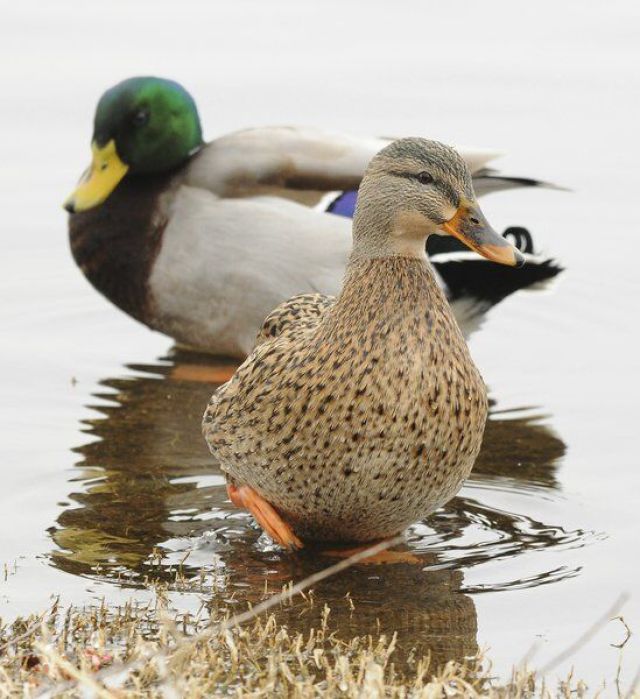You'll find mallard ducks near ponds, marshes, streams, and lakes, where they feed on plants, invertebrates, fish, and insects. Mallards are dabbling, or surface-feeding ducks because they eat by tipping underwater for food—head down, feet and tail in the air—rather than diving. Mallards also forage and graze for food on land. The male mallard duck, called a drake, sports a glossy green head, a white ring around its neck and a rich, chestnut-brown breast. The mottled brown female mallard looks downright dull next to the male's showy feathers.
Mallards fly in groups called flocks. Like most migratory birds, mallards fly in the famous V formation. During winter migration, mallards fly south in search of warm weather, often resting at the same spots year after year. Migrating mallards can travel great distances, relying on rivers, coasts, and valleys to find their way.
A female mallard lays up to a dozen eggs in nests on the ground near water, often in a small depression or tree hole. She lines the nest with warm down plucked from her undercoat. Soon after birth, baby ducks, called ducklings, open their eyes. A little more than a day after hatching, ducklings can run, swim, and forage for food on their own. They stay in the nest for less than a month. A group of ducklings is called a brood. Outside the nest, the brood sticks close by the mother for safety, often following behind her in a neat, single-file line.

